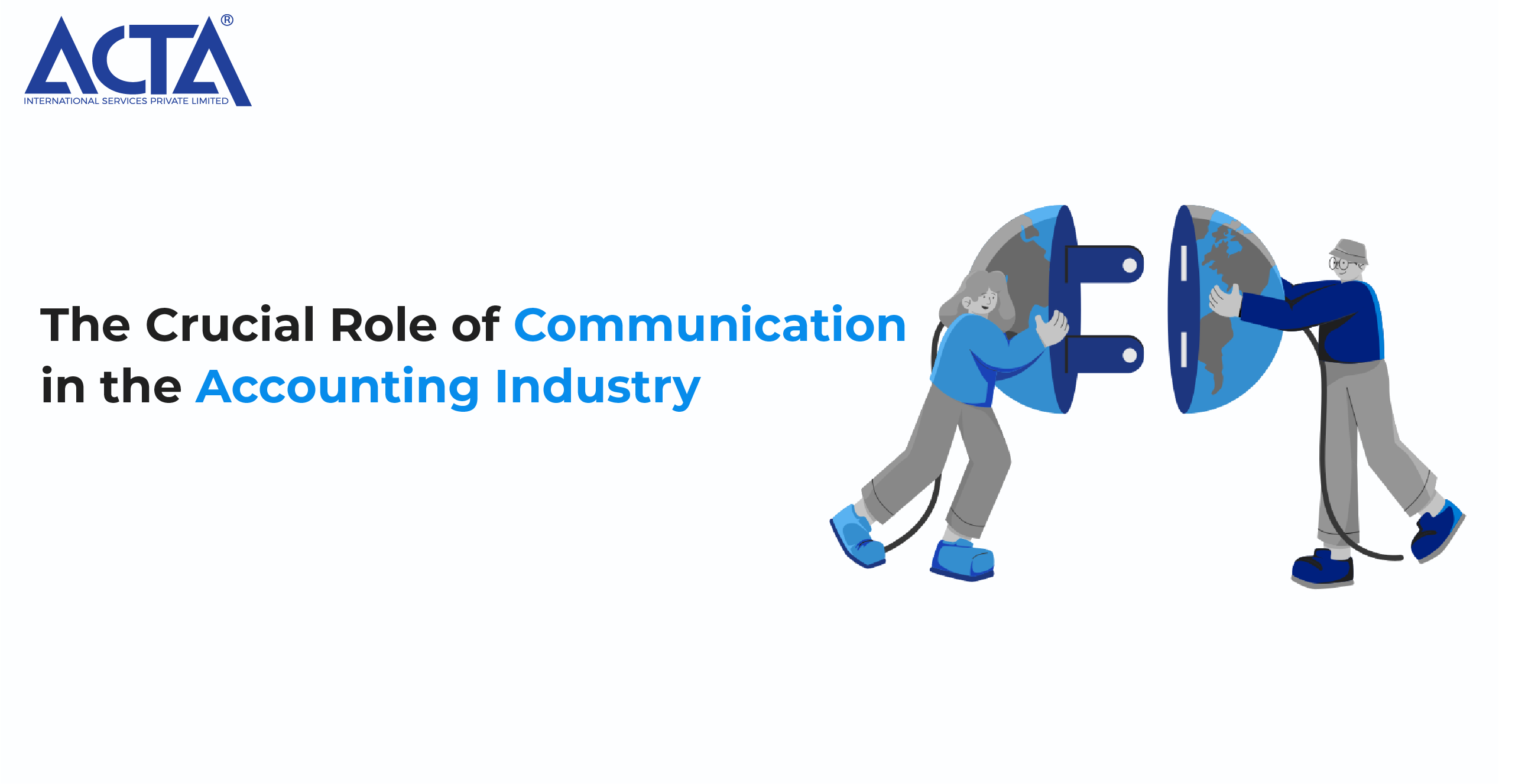
The Crucial Role of Communication in the Accounting Industry
Feb 12, 2024
By KARTHICK SUBRAMANIAM
Introduction:
In the dynamic world of finance and accounting, effective communication is not just a soft skill; it's a fundamental necessity. As we navigate through complex financial data and ever-evolving regulations, the ability to communicate clearly and effectively stands as a pillar for success in the accounting industry.
Why Communication is Important in the Accounting Industry?
1. Enhancing Client Relationships:
Accounting professionals often serve as financial advisors to their clients. Clear communication is essential in explaining complex financial concepts in simpler terms, ensuring that clients understand their financial position, options, and the implications of their decisions. This transparency builds trust, fosters long-term relationships, and enhances client satisfaction.
2. Compliance and Accuracy:
The accounting industry is heavily regulated and requires strict adherence to laws and standards. Precise communication is vital in ensuring compliance. Misinterpretations or errors due to poor communication can lead to significant legal and financial consequences for both the accountant and the client.
3. Team Collaboration and Efficiency:
Accounting tasks often involve collaboration among various departments or teams. Effective communication ensures that everyone is on the same page, which increases efficiency and reduces the likelihood of errors. It also helps in aligning the team's efforts with the organization's goals.
4. Navigating Technological Advances:
With the integration of technology in accounting – like cloud-based systems and AI – clear communication about these changes and their impacts on processes and decision-making is critical. This includes both internal communication within the organization and external communication with clients who may be affected by these technological advancements.
5. Crisis Management:
In times of financial uncertainty or crises, accountants are relied upon for guidance and clarity. Effective communication skills are crucial in these situations to provide calm, clear, and practical advice, helping clients navigate through difficult times.
How to Improve Communication in the Accounting Industry?
1. Understand Your Audience:
- For Clients: Break down complex accounting jargon into simpler terms. Remember, not all clients have a financial background.
- For Team Members: Use clear and concise language. Ensure that instructions and expectations are understood to avoid misinterpretation.
2. Active Listening:
- Engagement: Show engagement by nodding and maintaining eye contact. This encourages the speaker and shows you value their input.
- Clarification: Don’t hesitate to ask for clarification. This ensures you fully understand the client’s needs or team member’s ideas.
3. Leverage Technology:
- Accounting Software: Utilize client portals in accounting software for secure and efficient communication.
- Collaboration Tools: Implement tools like Slack or Microsoft Teams for better team collaboration and document sharing.
4. Regular Updates and Reports:
- Clients: Regularly update clients about their financial status or any changes in regulations that might affect them.
- Internal Communication: Keep your team informed about project progress and any changes in client requirements or company policies.
5. Develop Empathy and Patience:
- Understand that some concepts might take time for clients or new team members to grasp. Patience and empathy can go a long way in building strong relationships.
6. Continuous Learning and Training:
- Encourage your team to participate in workshops and training sessions focused on communication skills.
- Stay updated on the latest industry trends and communicate these learnings to your team and clients.
7. Feedback Mechanism:
- Implement a system for receiving feedback from clients and team members. This can provide valuable insights into areas where communication can be improved.
Conclusion:
Effective communication in the accounting industry is essential for building client relationships, ensuring accuracy and compliance, and enhancing overall productivity. By actively working to improve these skills, accounting professionals can significantly elevate their practice, ensuring both their and their clients’ success.
FAQs













